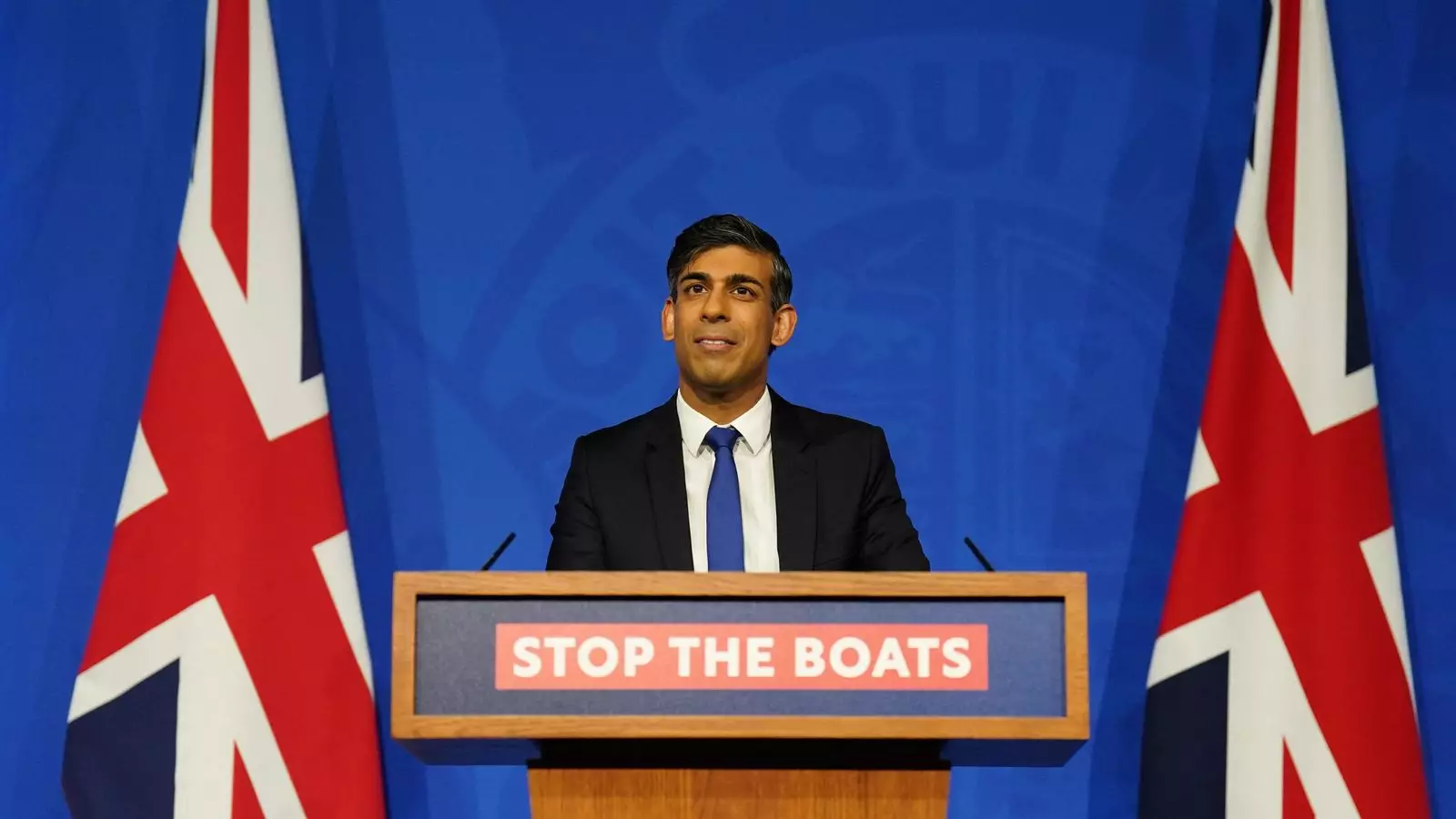The controversial Rwanda bill, a flagship legislation by Prime Minister Rishi Sunak, narrowly passed its second reading in the House of Commons. This crucial vote, which aims to revive the £290 million deportation scheme deemed illegal by the Supreme Court, saw 313 MPs supporting it and 270 opposing it, resulting in a majority of 43. While this outcome comes as a relief to the government, it is clear that challenges lie ahead as hardline Tories demanded amendments that could potentially derail the bill in future stages.
Tory Rebellion Averted
The division list revealed that 37 Conservative MPs abstained from voting, but none went against the bill. This is despite significant criticism and opposition from many Tory MPs, with former immigration minister Robert Jenrick even resigning due to his belief that the legislation was not tough enough. Nonetheless, this abstention leaves room for further contention, as hardline Tories are demanding amendments to tighten the plan by preventing interference from foreign courts. Moderates have made it clear that they will not support such amendments, setting the stage for potential conflicts in the future.
At its core, the Rwanda bill seeks to establish in UK law that Rwanda is a safe country for asylum seekers to be sent to. Additionally, it aims to prevent flights from being grounded for legal reasons by allowing ministers to disapply certain sections of the UK’s Human Rights Act. It is worth noting that this bill does not propose changes to the European Convention on Human Rights, despite calls from some on the right. The passage of this bill would signal a significant shift in the UK’s approach to immigration and asylum policy.
Challenges Ahead
While the bill cleared its second reading, there is no guarantee that it will sail smoothly through all stages of parliament. Tory hardliners from various factions, known as the “five families,” expressed opposition to the bill and the majority of them indicated they would abstain from voting. These MPs plan to table amendments early next year, seeking to “materially improve the bill and remove some of its weaknesses.” They have warned that they may even vote against the legislation at its third reading if their proposed changes are not incorporated. This sets the stage for a potential showdown in January.
The government has expressed its willingness to consider proposed changes from MPs at a later stage. However, Home Secretary James Cleverly has indicated that the legislation is already pushing the boundaries of what is politically feasible. The One Nation caucus, a group of roughly 100 moderate MPs, has also made it clear that they will not support the bill if it becomes more hardline. Damien Green, the chairman of the group, stated that the legislation currently strays “to the very edge of what’s acceptable in terms of meeting our international obligations and the rule of law.” This reflects a delicate balancing act for the government, as it tries to appease the concerns of hardliners without alienating moderates.
International Implications
The bill’s implications extend beyond domestic politics, with Rwanda itself playing a crucial role. The UK government has been informed by Rwanda that it will withdraw from the treaty if the UK fails to meet its “international obligations.” This adds an additional layer of complexity to the legislation, as failure to address concerns regarding international obligations could have significant ramifications.
The passage of the Rwanda bill at its second reading demonstrates the government’s ability to navigate through potential rebellion from within its own party. However, the future of this legislation remains uncertain, as hardline Tories demand amendments that moderates are unwilling to support. The bill’s clash with international obligations further complicates the situation. As the bill progresses through parliament, it is clear that Prime Minister Rishi Sunak will face formidable challenges in securing its final passage. Ultimately, the fate of the Rwanda bill will have far-reaching implications for the UK’s approach to immigration and asylum policy.


Leave a Reply